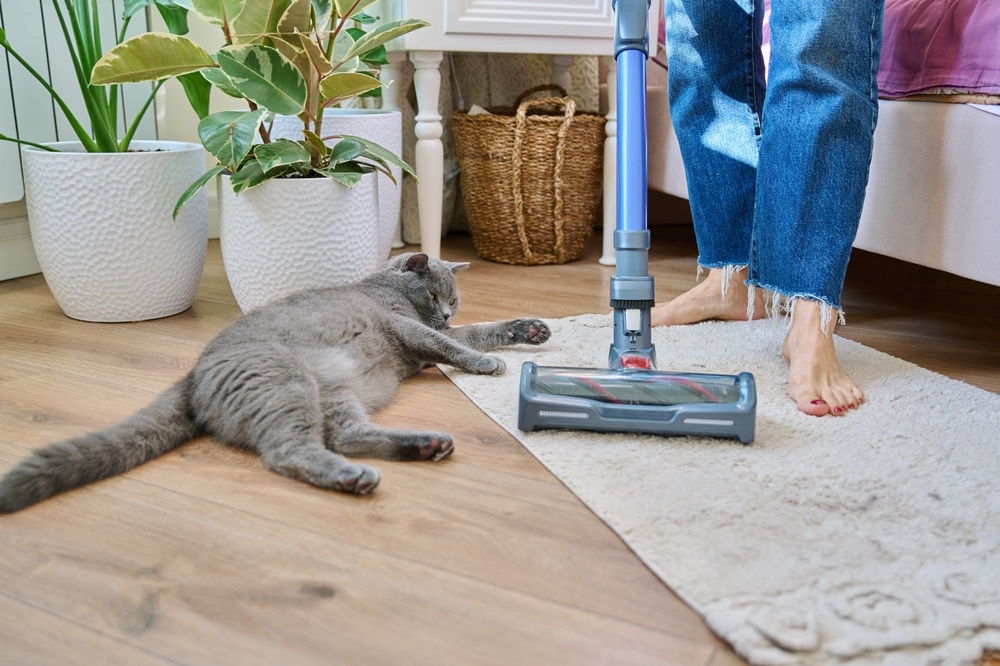Click to Skip Ahead
If you’re a person who is highly devoted and attached to your animal, relying on them to soothe emotional disabilities, renting a place can be extremely challenging. It seems that more and more landlords are unwilling to rent to people with pets, and it’s understandable.
Many people ruin it by letting their pets destroy, terrorize, and annihilate the house, leaving much damage for the landlord to repair. However, when it comes to emotional support animals, a person should be able to keep their cat if it aids in their mental health.
In this article, we’re going to discuss the laws about owning an emotional support animal and your rights as a tenant.
Landlords Cannot Deny an Emotional Support Animal
Luckily for those who have cause for having an emotional support animal, including a cat, landlords are not allowed to refuse, even if they have a no pet policy. As long as you have the proper documentation, the landlord has to accommodate the request. This goes for emotional support dogs as well.
Naturally, there are exceptions to this rule, which we will discuss below.

What Laws Protect Emotional Support Animals?
The Fair Housing Act applies to nearly any rental property in the United States, including private landlords. If a person has any kind of disability, this law makes it impossible for a landlord to deny the request.
Who Qualifies for Disability Under the Fair Housing Act?
If your doctor believes that you would benefit from having an emotional support animal, they will write you a letter of recommendation. This letter will count as a legally binding document.
You don’t need to get any special approval or a certified letter, although options are available if you choose to do so. The quickest, cheapest, and most hassle-free way is to get a letter directly from the doctor.

How Do You Ask for Emotional Support Accommodation?
There is no specific certification or legal documentation you have to have to have an emotional support animal. Typically, you will go to your doctor or mental health provider to write you a detailed written statement.
If your doctor thinks that you need an emotional support animal, they will make the suggestion and a landlord cannot dispute it.
What to Do If a Landlord Tried to Deny Housing?
If you have done everything in your power to apply to a place correctly but you still believe you are being unfairly rejected due to an emotional support animal, you can file a dispute.
You can send disputes to the official office in your state or contact the US Department of Housing and Urban Development at:
- Phone: 800-669-97777
- Website: hud.gov
- Timeframe to File: 1 year

Landlords with No-Pet Policies
As we mentioned earlier in the article, it does not matter if a landlord has a no pet policy. If a person needs an emotional support animal to accommodate them with daily living, a landlord cannot deny the tenant of these rights.
Stipulations
As we mentioned above, there are certain stipulations that prevent your support animal from being considered or could cause early termination of your lease. Below are some things that you need to consider.
Ultimately, proper training and care is absolutely essential anytime you have a pet living in close proximity to other people. This is especially true if it is a rental property that you do not personally own yourself.
Your Animal Is Destructive
If you have a particularly destructive animal, this can be a big no-no for any living space. The bottom line is, landlords are still responsible for fixing any repairs that a tenant doesn’t cover when they move out.
If your animal has claws and tears up carpet or causes any other potentially expensive damage, it could cause astronomical fees and even potential eviction.

Your Animal Is Dangerous
Your emotional support cat might be a joy to have around for yourself. However, some cats absolutely do not like other people. If they have a history of aggression towards people, it can be extremely problematic, especially if you’re living in an apartment complex or condo.
If you think your cat might not be so nice to the neighbors, keep them indoors.
Your Animal Is a Nuisance
If your animal is a pest, digging up neighbors’ flowers to do their business or some other destructive annoyance, your landlord might have a pretty significant problem with it. After all, if you are communally living, you have to consider everyone else who lives around you.
Certain behaviors can make keeping your cat from being a nuisance quite difficult. That is why diligent training or restraint is such an essential part of pet ownership.
You Don’t Practice Proper Upkeep
Pets can make your house downright messy! If you are not cleaning up properly after your pet, it’s going to cause a big rift with your landlord. This includes not cleaning up your cat’s messes inside and outside the property.
Letting them destroy anything on the inside of the home or not cleaning up messes is a violation of a lease agreement. Contracts state that you are to keep your place well-managed and livable.

Your Animal Is Not Up to Date on Shots
Our cats are supposed to receive the appropriate vaccinations on a timed schedule. As a kitten, your cat will receive several rounds of vaccines to keep them up to par.
These vaccines will help to prevent parasites, viruses, and other illnesses that could be transferred to them through their environment or by other animals. If your cat is behind on shots, it can put other cats, and dogs, at a risk of contracting disease, or even put humans at risk.
Considerations as a Pet Owner
Here are some tips in order for you to keep in good standing with your landlord and ensure your pet is receiving proper care.
Clean Up After Your Animal
Clean out the poop from the litter boxes, as well as vomit and other messes your cat makes. Make sure the outdoors are tidy and well kept. Keep your inside free of a lot of structural damage by watching your pet closely when you are home. You can use cameras to keep an eye on them when you’re away.

Ensure They Do Not Damage the Home
If your cat damages the home during your residency, you’re going to have to pay for the damages. Since people who have an emotional support animal do not have to pay the standard fees and pet deposit, that leaves you to cover the damages out of pocket.
Conclusion
Now you understand your rights as a tenant if you have an emotional support cat. Our cats can certainly be there for us in more ways than we can understand. No landlord should be able to tell someone they can’t have their best friend, unless it directly impacts the overall integrity of the property or poses a threat to other tenants.
As long as you’re holding up your end of the bargain, no landlord can turn you or your cat away.
Featured Image Credit: Wanwajee Weeraphukdee, Shutterstock










